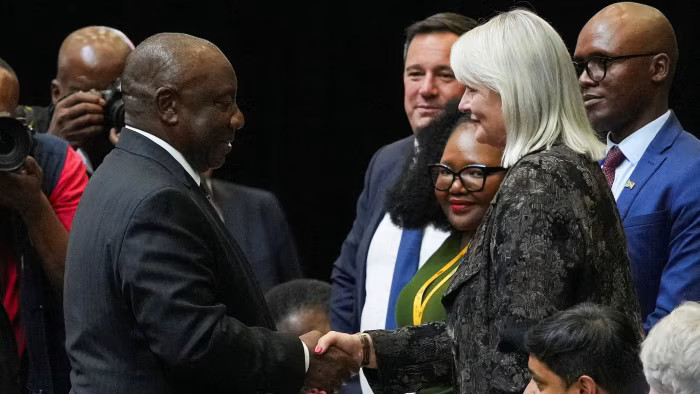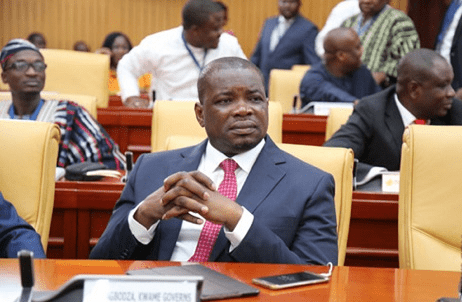Cyril Ramaphosa has been re-elected as South Africa’s president, following two weeks of intense negotiations after his African National Congress (ANC) failed to secure a majority in the nation’s seventh democratic election.
Ramaphosa, a moderate economist, has led South Africa since 2018, succeeding Jacob Zuma, who was marred by corruption allegations.
In Friday’s parliamentary vote, Ramaphosa decisively defeated Julius Malema, the radical leader of the Economic Freedom Fighters (EFF), who advocated for the nationalization of banks and key industries.
Ramaphosa garnered 283 votes against Malema’s 44 and will be officially sworn in on Wednesday.
His re-election was uncertain following the May 29 election, in which the ANC secured only 40.2% of the votes. South Africans turned their backs on Mandela’s former liberation party due to frequent power outages, corruption, and failing public services.
To ensure Ramaphosa’s re-election, the ANC entered into a power-sharing agreement with the opposition Democratic Alliance, a pro-market party popular among minority voters, and the Zulu-dominated Inkatha Freedom Party (IFP).
Negotiations lasted until 2am on Friday, with the final agreement signed mid-morning after parliament had already convened. The agreement saw the DA supporting Ramaphosa’s re-election and the ANC’s Thoko Didiza for parliament speaker, while the DA’s Annelie Lotriet was elected deputy speaker.
Addressing parliament late on Friday, Ramaphosa hailed the power-sharing deal as a new era for South Africa.
“This is not a grand coalition of two or three parties. This is a government of national unity, and we have been here before. We were here in 1994 when we sought to unite our country and effect reconciliation,” he said, referencing the first unity government post-apartheid, which lasted until 1999.
Velenkosini Hlabisa, IFP leader, told Ramaphosa, “we will support you in every right decision, but where we must disagree, we will do so.”
The agreement positively impacted the country’s markets, which had feared an alliance between the ANC and either Malema’s EFF or Zuma’s new uMkhonto weSizwe Party, both advocating for scrapping the constitution.
The South African rand strengthened to R18.33 to the dollar on Friday, after weakening to around R19 earlier in the week.
John Steenhuisen, DA leader, described the deal as a “historical” moment, allowing his party to “co-govern”. Helen Zille, DA chair, said, “This gives South Africa a chance of creating a stable democracy and an inclusive economy.”
The coalition deal emphasizes economic reforms, outlining nine high-level priorities to revive South Africa’s economy, which has struggled to surpass a 1% annual growth rate over the past decade.
These range from promoting rapid, inclusive, and sustainable economic growth to stabilizing local government.
Ann Bernstein, executive director of the Centre for Development and Enterprise, a Johannesburg-based think-tank, said the deal could pave the way for economic revival.
“It is hugely significant that parties committed to the rule of law and the constitution have come together to build a government based on those principles, because there were far worse alternatives,” she said.
“After 15 years of stagnation, this is an opportunity for a decisive government to really accelerate growth. The country is in a crisis, but this government of national unity could be a very positive development.
The fact that the ANC has unequivocally accepted the results of the election is a very important moment for South Africa’s democracy.”










